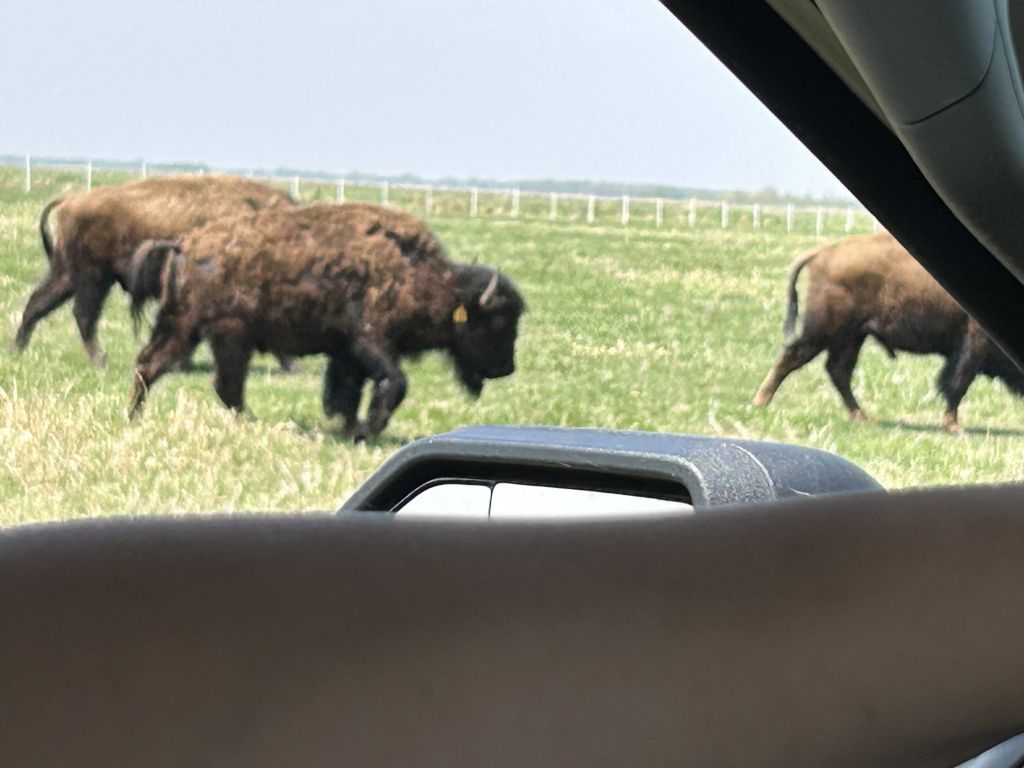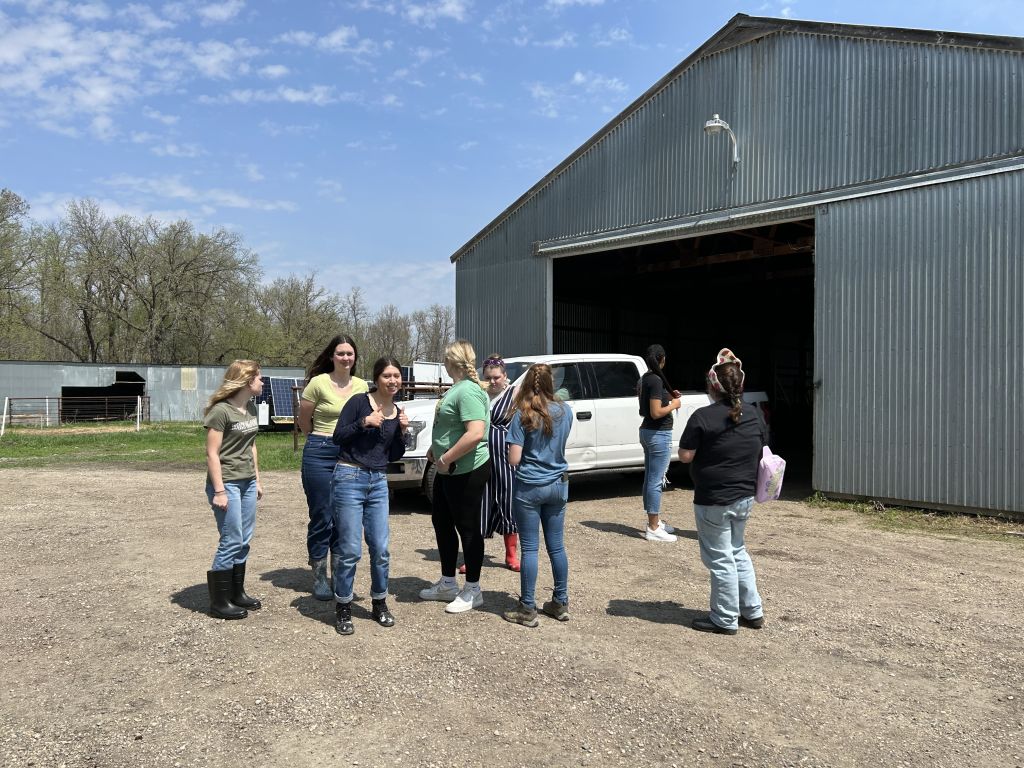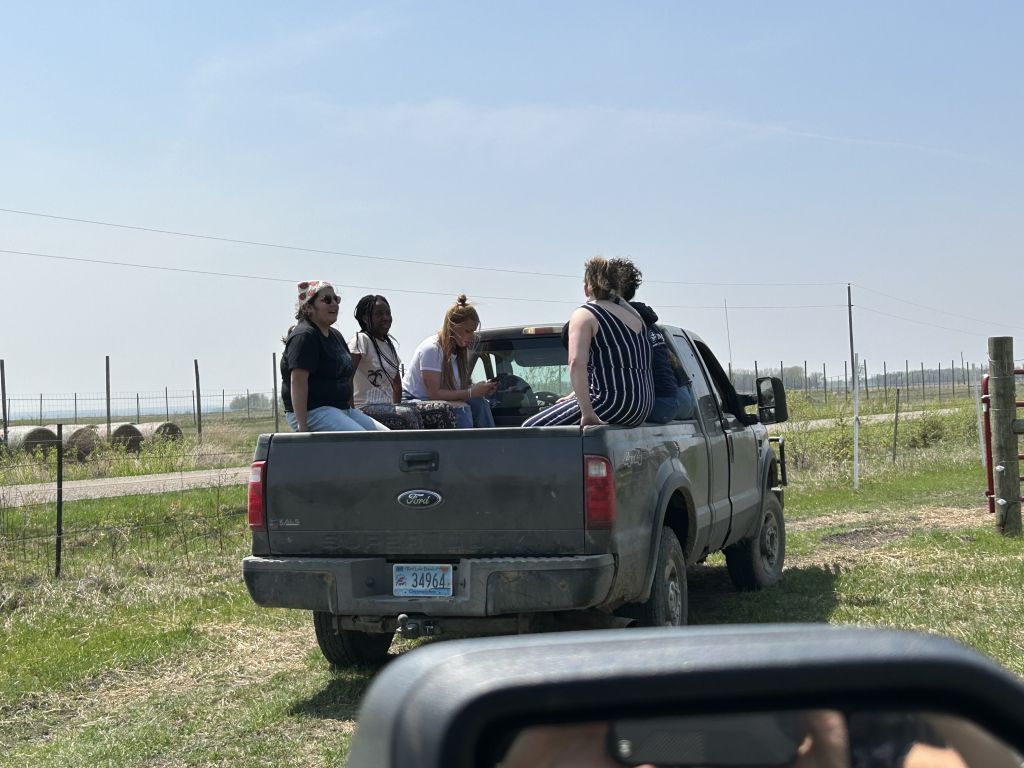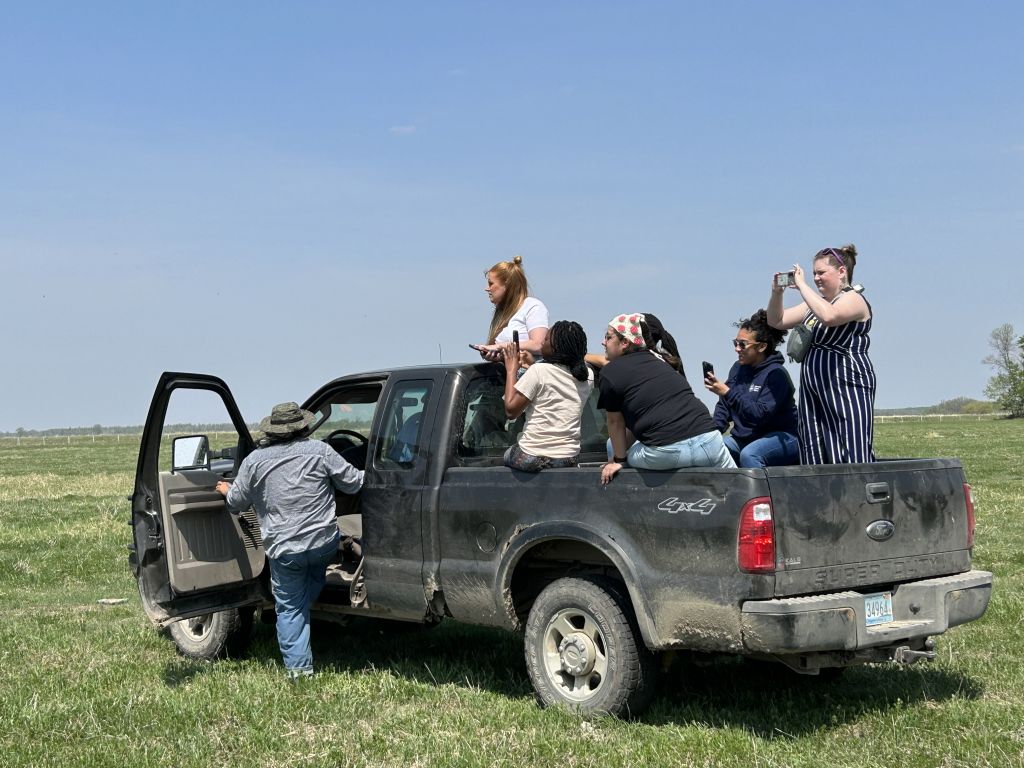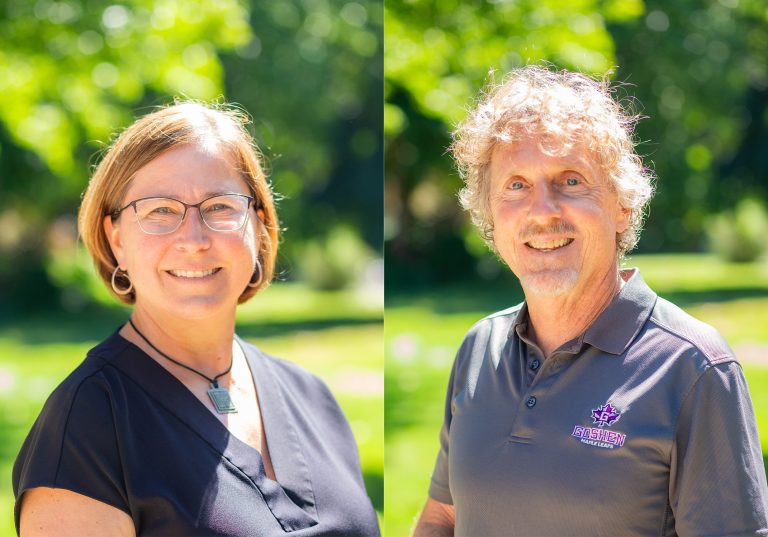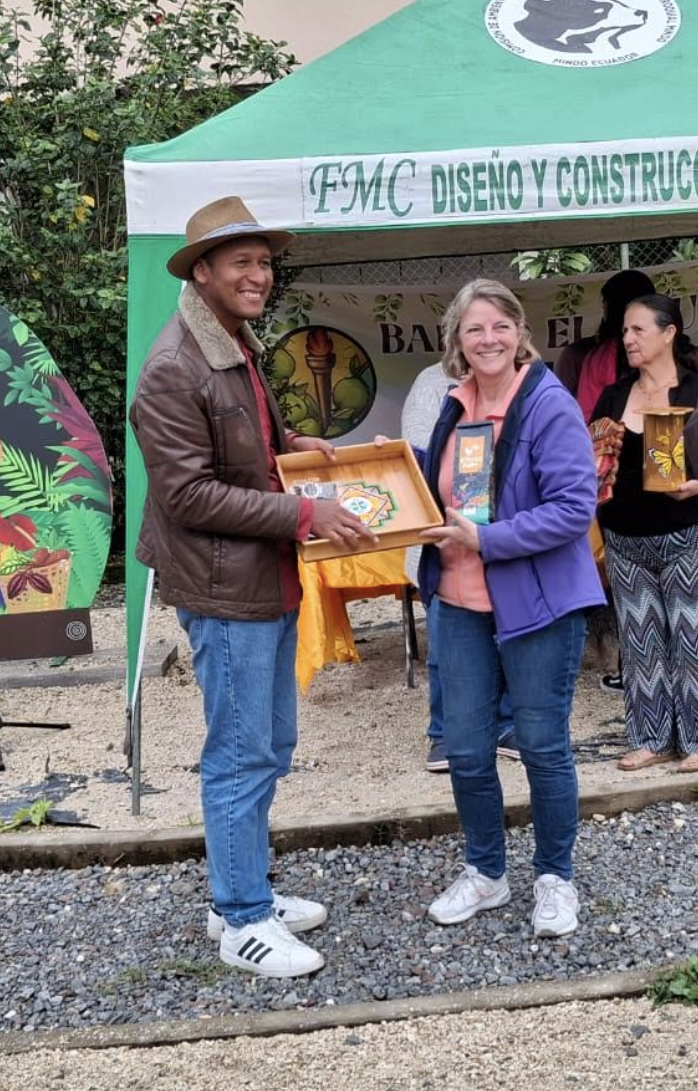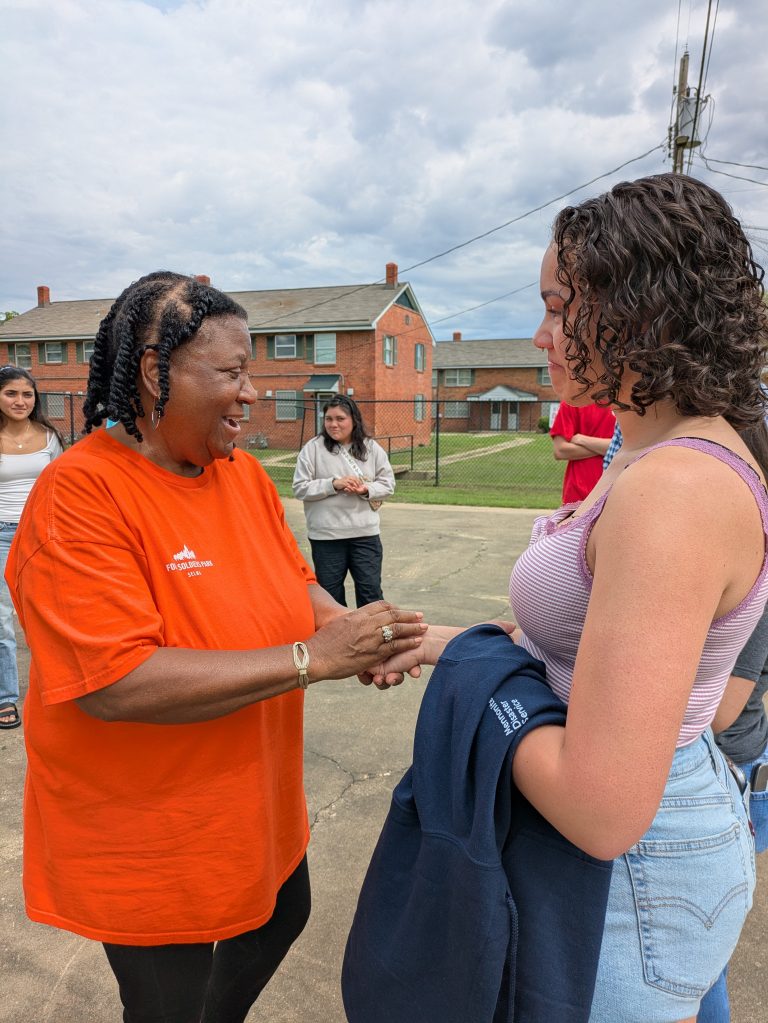Goshen College’s “SST for all” makes global education more accessible with flexible study options at home and abroad.

News
Buffalo Ranch
May 25 2023
This blog was written by Keren Masinga, a second year nursing major.
On Wednesday afternoon, we drove 30 minutes to visit the Buffalo Ranch of Red Lake Nation. We all climbed into the back of several pick up trucks and headed out into the grasslands to find the buffalo herd, including three newly born calves. The Buffalo Ranch was created by the Director of Agriculture, Cherilyn Spears, as a way to provide locally sourced and healthy meat to the entire community of Red Lake Nation. The buffalo ranch has 280 fenced in acres, along with a processing facility for harvesting the buffalo.
One of the workers of the Ranch stated that they started with 7 buffaloes and now they have 37 buffalo. The buffalo feed graze in the grasslands during spring and summer but the ranch workers must supplement their diets during the winter. The buffalo eat 800 pounds of grass and hay during the winter.
The ranch bought the buffalo in South Dakota and transported them to the Red Lake Ranch. They explained why the buffalo roll in the mud and dust which helps guard them from the biting of flies and other insects. The buffalo feces fertilize the acres which help to grow vegetables and grains. The buffalo ranch works in collaboration with the Natural conservation service in order to maintain Buffalo in good condition and also for the safety of people who come to visit the ranch. Many restaurants and local people buy fresh buffalo meat from them. They also have farms where they raise cows, sheeps to feed the community of Red Lake Nation.
